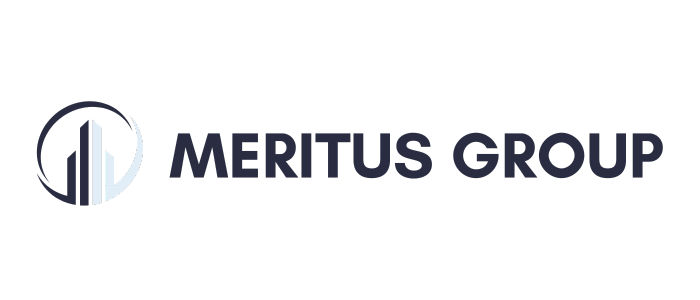In the ever-evolving landscape of business, understanding industry trends is crucial for both buyers and sellers. These trends can significantly impact decision-making processes, influence valuations, and reshape market demand. This article delves into how current industry trends play a pivotal role in the dynamics of buying and selling businesses.
The Influence of Emerging Sectors on Business Transactions
In the dynamic world of business, emerging sectors stand as beacons of new opportunities, often heralding a shift in economic momentum. These sectors, characterized by their rapid growth and potential for innovation, can greatly impact the landscape for both business sellers and buyers.
Opportunities for Sellers: If you’re a seller in an emerging sector, you’re in a unique position. Being part of an industry that’s on the rise can significantly elevate the value of your business. It’s like riding the crest of a wave – your business not only benefits from the current growth but is also positioned advantageously for future developments. For instance, a business operating in renewable energy is not just selling its current operations; it’s offering a stake in what is increasingly becoming a critical sector of the global economy. The key here is to highlight how your business aligns with and contributes to the growth trajectory of the sector.
Potential for Buyers: For buyers, these sectors represent exciting investment opportunities. They often promise high returns and a chance to be part of cutting-edge developments. However, investing in emerging sectors requires a strategic approach. It’s crucial to analyze the sustainability and long-term viability of these markets. A sector may be booming today, but it’s the future prospects that count. Conducting thorough research and due diligence is essential to understand the trajectory and stability of these industries.
Sectors Leading the Charge: Let’s look at some of the sectors that have been consistently growing and reshaping the economic landscape:
- Renewable Energy: With global shifts toward sustainability, renewable energy is more than a trend; it’s the future. Businesses in this sector are not just selling energy solutions; they are part of a vital movement towards a more sustainable and environmentally friendly world.
- Technology: This is a broad sector that encompasses everything from AI and machine learning to cybersecurity and cloud computing. Technology businesses are at the forefront of innovation, driving changes in how we work, live, and interact.
- Healthcare: The healthcare sector has always been crucial, but recent global events have underscored its importance. Innovations in healthcare, whether it’s new treatments, telemedicine, or healthcare IT, offer vast potential for growth and impact.
Understanding the nuances of these emerging sectors can make a significant difference in the buying or selling process. For sellers, it means being able to capitalize on the current market enthusiasm. For buyers, it’s about identifying businesses with long-term growth prospects in these promising sectors.
Technological Advancements Shaping Businesses
In the modern business landscape, technology acts as a catalyst for growth and innovation. Its influence permeates every industry, redefining how businesses operate and compete. Understanding and leveraging technological advancements is crucial for both sellers and buyers in the business marketplace.
For Sellers: A Showcase of Innovation: If you’re selling a business, your adoption and integration of technology can significantly amplify your appeal to buyers. It’s about demonstrating how technology has been harnessed to improve your operations, product offerings, or customer experiences. This could be through implementing cutting-edge software to streamline workflows, using data analytics to inform strategic decisions, or adopting e-commerce platforms to expand market reach. Showcasing these technological integrations indicates that your business is not just keeping pace with current trends but is poised to adapt to future advancements. It presents your business as a forward-thinking entity, ready for the evolving demands of the market.
For Buyers: Assessing the Technological Edge: Buyers, in this tech-driven era, need to critically assess how technology is embedded in the business they aim to acquire. It’s not just about the technology that’s currently in place but also about the potential for future technological integration. How will technology drive growth, efficiency, and competitive advantage in the long run? This involves evaluating the scalability of the current technology, the business’s capacity for adopting new tech trends, and the potential return on investment in technology. For example, a business with an established online presence and a robust digital marketing strategy might offer more value, considering the increasing shift towards digital consumerism.
The Role of Technology Across Sectors: Technological advancements have a universal impact across various sectors. In manufacturing, automation and robotics have revolutionized production processes. In retail, e-commerce platforms and digital payment systems have transformed how we shop. In services, cloud computing and mobile technology have enabled new levels of flexibility and customer engagement. These advancements not only enhance operational efficiency but also open doors to new market opportunities, enabling businesses to tap into previously inaccessible customer segments or geographic markets.
Navigating Technological Disruptions: Both sellers and buyers must be cognizant of the disruptive potential of technology. For a business on the market, being able to demonstrate how it has successfully navigated or capitalized on technological disruptions can be a substantial value-add. It’s about showing resilience and adaptability in an ever-changing technological environment.
Consumer Behavior Shifts: Adapting to Market Evolution
In today’s market, one of the most significant drivers of change is the shifting patterns of consumer behavior. These shifts are not just fleeting trends; they represent deeper changes in preferences, expectations, and values. Understanding and adapting to these shifts is vital for both sellers and buyers in the business landscape.
For Sellers: Aligning with Consumer Trends: If you’re selling a business, demonstrating how your business aligns with current consumer trends can significantly enhance its market appeal and valuation. This involves more than just acknowledging these trends; it’s about integrating them into your business model and strategy. For instance, if your business has adapted to the growing demand for online shopping by developing a robust e-commerce platform, this adaptation speaks volumes about your business’s responsiveness to market needs. Similarly, incorporating sustainable practices can appeal to the increasingly environmentally conscious consumer base, thereby enhancing your brand value and appeal.
For Buyers: Assessing Future Relevance: Buyers, on the other hand, must carefully evaluate how shifts in consumer behavior will impact the future trajectory of the business. This means looking beyond current profits and operations to how the business can evolve in line with these changing patterns. For instance, a business that has not yet embraced digital transformation or sustainable practices might face challenges in the future, as consumer preferences continue to evolve in these directions. Assessing a business’s capacity to adapt to and capitalize on these shifts is crucial in making a sound investment decision.
Key Trends Reshaping Consumer Behavior:
- Online Shopping: The surge in online shopping has revolutionized retail and many other industries. Businesses that have successfully transitioned to or incorporated an online model are often more appealing to buyers.
- Sustainable Practices: With a growing awareness of environmental issues, consumers are increasingly favoring businesses that demonstrate a commitment to sustainability. This trend is prompting businesses to adopt eco-friendly practices and products.
- Personalized Services: Consumers today expect personalized experiences tailored to their preferences. Businesses leveraging data analytics and AI to provide personalized services are aligning with this significant consumer trend.
Navigating the Shift: Both sellers and buyers need to be astute in understanding and navigating these consumer behavior shifts. For sellers, it’s about showcasing how your business has successfully adapted to these changes. For buyers, it’s about discerning the potential of the business to remain relevant and thrive amid these evolving consumer preferences.
The Impact of Industry Trends on Business Valuations
When it comes to determining the value of a business, industry trends are more than just a backdrop; they are key factors that can significantly influence valuation. For both sellers and buyers, understanding these trends is not just beneficial—it’s essential for making informed decisions.
For Sellers: Leveraging Trends to Maximize Value: If you’re selling a business, a keen awareness of how current trends are shaping your industry can be a game-changer. It’s about positioning your business within the context of these trends to underscore its value. For instance, if you’re in an industry that’s riding the wave of digital transformation, demonstrating how your business has successfully integrated digital solutions can enhance its appeal and, consequently, its valuation. This alignment with positive industry trends can signal to potential buyers that your business is not just current but also primed for future growth, which can justify a higher asking price.
For Buyers: Gauging Long-Term Potential: On the flip side, buyers need to look at how these industry trends will influence the business’s future performance. It’s about forecasting the longevity and sustainability of the business’s success in the context of these trends. A business that is thriving in a growing industry or one that has shown the ability to adapt to new trends suggests strong future profitability and expansion possibilities. This forward-looking approach helps buyers assess the long-term return on their investment.
Understanding Sector-Specific Trends: Different industries will have different impactful trends. For instance, in the tech sector, rapid innovation and shifts towards things like cloud computing or AI could be significant. In retail, the shift towards e-commerce and sustainable practices might be more relevant. Understanding these nuances is crucial for accurately assessing a business’s value.
Trends as Indicators of Growth Potential: A business that aligns well with positive industry trends is often seen as having a higher growth potential. For example, a company in the renewable energy sector, which is seeing increasing consumer demand and governmental support, may be valued higher due to its growth trajectory in an expanding market.
Navigating Market Dynamics: Ultimately, understanding and navigating these industry trends require a blend of market knowledge, foresight, and strategic thinking. They are critical in shaping a realistic and fair valuation of a business, reflecting its current market position and future potential.
Navigating Trends with Expert Guidance
For both buyers and sellers, navigating industry trends requires a strategic approach and deep market understanding. Whether you are looking to sell your business at a premium value or seeking to invest in a business with great potential, keeping a pulse on industry trends is key.
Meritus Group Business Brokerage offers expert guidance and in-depth market analysis to help you make informed decisions. If you’re considering buying or selling a business and want to understand how industry trends could impact your decision, contact us at (605) 252-9520 or visit our website. Let our team of experts assist you in navigating these complex decisions and maximizing your opportunities in today’s market.

